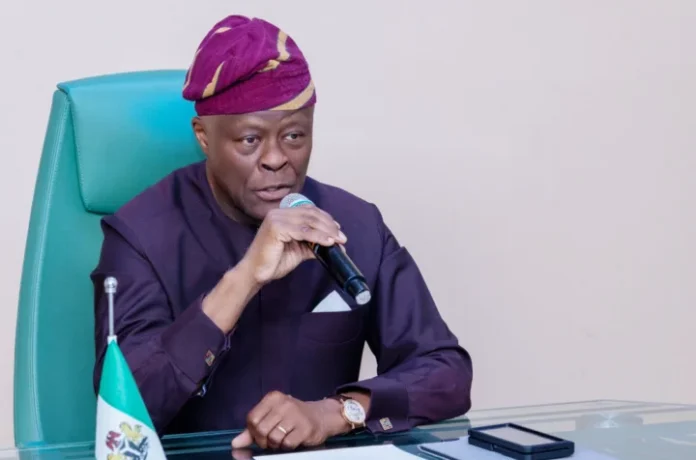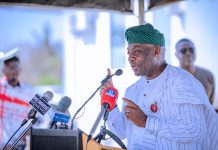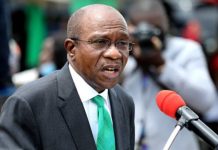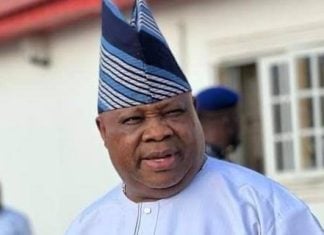Nigeria’s economy is changing as a result of a number of challenging but essential changes, and Wale Edun, the Minister of Finance and Coordinating Minister of the Economy, deserves a large portion of the credit for this development. Under his leadership, the country has started to transition from years of budgetary hardship and policy ambiguity to a more stable, open, and growth-oriented framework that is winning back trust both domestically and internationally.
Nigeria’s economic recovery is no coincidence. As Minister of Finance and Coordinating Minister of the Economy, Wale Edun has painstakingly and carefully guided an ambitious, well-organized agenda of reforms and institution creation. The cumulative impact of complementing policy actions that collectively have decreased distortions, enhanced openness, and reopened corridors of international confidence is what is remarkable rather than a single noteworthy accomplishment.
Edun’s strategy has blended political acumen with technological precision. In addition to safeguarding priority spending, bolstering revenue management, and reestablishing the integrity of financial institutions, he has emphasized on regaining fiscal credibility. When combined, these actions have started to alter how partners and markets view Nigeria and are already producing quantifiable, albeit gradual, results. Although they are helpful indicators of that development, recent international evaluations and market responses are not the whole picture.
International organizations and investors are already observing the effects of this change. Nigeria’s GDP growth prediction for 2025 was recently upgraded by the International Monetary Fund from 3.4% to 3.9%. The IMF claims that increased oil output, increased investor confidence, and a more robust fiscal policy environment are all reflected in this revision. Such advancements are not coincidental. They are the result of the government’s unambiguous resolve, under Edun’s direction, to tighten coordination between fiscal and monetary authorities, improve debt sustainability, and restore macroeconomic discipline. The upgrading is an endorsement of Nigeria’s economic reforms as well as the legitimacy of its leadership group.
Nigeria’s official removal from the Financial Action Task Force’s (FATF) “grey list” in October 2025 marked another noteworthy milestone. The FATF is a global blacklist for nations that are being closely watched for inadequacies in their efforts to prevent money laundering and terrorism funding. Nigeria’s improved interagency collaboration and reform advancements were recognized by the FATF as being crucial to its ruling. The Nigerian Financial Intelligence Unit, the Central Bank of Nigeria, and other authorities collaborated closely with the Ministry of Finance under Edun’s direction to improve financial transaction transparency, modernize financial crime monitoring technologies, and fortify compliance frameworks.
The ramifications of this accomplishment are extensive. It is anticipated that Nigeria’s removal from the grey list will facilitate cross-border financial transactions, enhance correspondent-banking ties, and lower the cost of foreign capital. Investors see it as an indication of a safer, more regulated corporate climate. It translates into increased opportunities for economic inclusion, job creation, and investment inflows for residents. In summary, for a government looking to restore confidence in Nigeria’s economic governance, it is both a technical and symbolic achievement.
Edun’s ability to create and implement a cogent reform plan that balances economic restraint with transparency and creativity has been the key to his success. In order to provide better value for money, his ministry has prioritized expanding Nigeria’s income base through non-oil sectors, enhancing tax administration, and rationalizing governmental spending. The main objective is to make the economy more responsive to the demands of its citizens and less susceptible to shocks from the outside world.
Edun and his team described how a renewed sense of purpose centered on modernizing public financial management systems, bolstering institutional capacity, and encouraging accountability at every level is driving reforms in a recent reflection titled “Nigeria Turning Towards Prosperity” published by the Federal Ministry of Finance. This focus on systemic transformation is progressively fostering trust among investors and development partners as well as among regular Nigerians who are starting to notice signs of responsible government.
Even Nevertheless, Edun has frequently admitted that there are obstacles in the way of success. Infrastructure deficiencies continue to impede productivity, inflation is still a major issue, and the government needs to do more to guarantee that growth results in higher living standards. However, the government has set the groundwork for inclusive and long-lasting advancement by tackling these structural problems through uniform policy execution and cross-institutional cooperation.
What is happening is that Nigeria’s economic story is quietly but significantly changing. The nation is regaining its position as one of Africa’s top economies because to a mix of responsible financial management, improved institutions, and trustworthy interactions with foreign partners.
Wale Edun has shown both technical proficiency and political bravery in a time when economic policymaking need both. He has assisted in guiding Nigeria along a path of recovery and restored international trust by placing a high priority on fiscal credibility, transparency, and institutional change. Nigeria’s economy is stabilizing, investor morale is improving, and the promise of shared prosperity is once again within grasp, despite ongoing hurdles.
The goal of these reforms is to revive faith in Nigeria’s story—one of resiliency, reform, and renewal—rather than just focusing on statistics and forecasts. His leadership has demonstrated that the Nigerian economy can, in fact, turn the corner towards sustainable growth and long-term prosperity with the correct leadership, sensible policies, and transparent accountability.
After a period of persistent imbalances and diminished investor confidence, clear policy decisions, institution-building, and meticulous reform sequencing are being implemented. Improved international ratings, a more transparent macroeconomic framework, and a gradually expanding foundation for sustainable growth are the outcomes.
Dale In this process, Edun has served as a link between the political and the technical. Only when legislators handle communication and sequencing with the same attention as they do the substantive policy decisions will reform be successful. Edun has worked to modernize tax systems, fortify organizations in charge of maintaining financial integrity, and allow private investment in the economy while maintaining fiscal credibility. The end product is a reform architecture that gives institutional longevity and technical fixes equal weight. This combination has been essential to obtaining the IMF improvements, the FATF delisting, and revived investor interest, according to observers who monitor policy implementation.
The priorities are obvious when looking ahead. To maintain the FATF delisting, combine improvements in financial supervision and anti-money laundering. Expand the income base via modernizing taxes and customs. Reforms that encourage private investment in infrastructure should be accelerated because governmental resources are insufficient. Additionally, make sure social protection is properly targeted to promote inclusive growth. These responsibilities call for ongoing policy discipline, improved federal and state delivery capabilities, and constant engagement to the public and private sectors.
Nigeria’s current situation is the result of difficult decisions and thoughtful planning. Wale Edun has played a key role in both that design and the patient diplomacy required to convert technical innovations into legitimate national policy. While the FATF ruling and the IMF modification are significant indicators, they also point to a more significant result: Nigeria is reconstructing the framework of contemporary economic governance. Long-term economic benefits will result from the preservation and development of that architecture.
The following noteworthy areas sum up the reform’s achievements:
strengthening GDP growth and composition
Growth has returned to positive territory under Edun’s leadership thanks to strong reforms. For example, real GDP increased by 2.98 percent in the first quarter of 2024 compared to 2.31 percent in the first quarter of 2023. Nigeria then saw 3.13% growth in Q1 2025, indicating an upward trend. The underlying pattern is one of recovery from stagnation and renewed dynamism, even though annual growth in 2023 was 2.74%, up from 3.10% in 2022.
Beyond the headline rate, measures bolstering the industry and services sectors—like the progressive liberalization of downstream oil, tax reform, and institutional enhancements—are starting to change the output composition in favor of more contemporary sectors.
Reducing the pressure to inflate
Data show a distinct disinflationary trend, suggesting that policy frameworks are regaining traction even though inflation is still a problem. The National Bureau of Statistics reports that headline inflation decreased from 22.22 percent in June 2025 to 21.88 percent in July. More generally, according to trading-economics data, inflation was 18.02% in September 2025, a decrease from more than 20% the month before. In summary, there is policy room for interest-rate moderation and household relief as the inflation tidal seems to be slowly retreating.
bolstering reserves and external buffers
The recovery of Nigeria’s foreign exchange reserves and external buffer is an important, frequently overlooked reform under Edun’s purview. At the end of 2024, the Nigerian Central Bank recorded net foreign exchange reserves of US$23.11 billion, the largest amount in three years. In December 2024, gross external reserves increased from US$33.22 billion to around US$40.19 billion. More recently, reserves reached their highest point since December 2021 in August 2025, surpassing US$41 billion. These reserve gains boost investor confidence, strengthen Nigeria’s ability to withstand external shocks, and strengthen its currency defense capability.
Reform architecture, institutional fortification, and policy coherence
A cogent reform framework lies at the core of these advancements. Four interrelated pillars have been pursued by Edun and his team: (i) fiscal consolidation and the rationalization of subsidies; (ii) revenue mobilization and tax modernization (including mandatory e-invoicing for large taxpayers, digital tax systems); (iii) public financial management reform, debt-portfolio rationalization, and transparency improvements; and (iv) institutional and regulatory strengthening, particularly in financial-crime supervision, anti-money-laundering mechanisms, and liberalization of foreign exchange markets. For instance, these institutional changes served as the foundation for Nigeria’s delisting from the FATF gray list in October 2025.
These are not surface-level reforms. By design, they improve ratings, lower risk premia for investors, increase the legitimacy of the political environment, and provide room for private-sector investment that boosts GDP.
It’s not a lap of victory. This is a preliminary evaluation. However, as of right now, the signal is clear. Nigeria has started to translate policy bravery into institutional advancement and quantifiable economic results under Wale Edun’s leadership.
The next challenge is to increase the scope and durability of those benefits so that reform becomes a long-term route to shared prosperity rather than a one-time event.
It is impossible to overestimate the cumulative impact of these changes. Nigeria is repositioning itself for the next stage of economic transition with better growth, reduced inflation pressure, greater external buffers, and strengthened institutional frameworks. Nevertheless, there are still significant obstacles to overcome, such as closing infrastructure gaps, guaranteeing that the common citizen benefits from reform, and maintaining the momentum of income and investment mobilization.
Edun has compared his work to that of a conductor coordinating several reforms while maintaining harmony and rhythm across institutional, monetary, and fiscal tools. Building the framework for long-lasting transformation is just as important to his success as headline numbers. The FATF delisting and the IMF growth updates are significant turning points, but the real effort lies in restoring trust, implementing systems, and layering changes.
Let’s say Nigeria may now use this platform to achieve inclusive growth, draw in long-term investments, and strengthen structural reforms. In that scenario, the accomplishments thus far will signal the start of what may turn out to be a long-term period of revitalization. Nigeria has established the groundwork under Wale Edun’s leadership; the next challenge is to build upon it and establish reform-led growth as the new standard.
Join Television Nigerian Whatsapp Now
Join Television Nigerian Facebook Now
Join Television Nigerian Twitter Now
Join Television Nigerian YouTUbe Now





